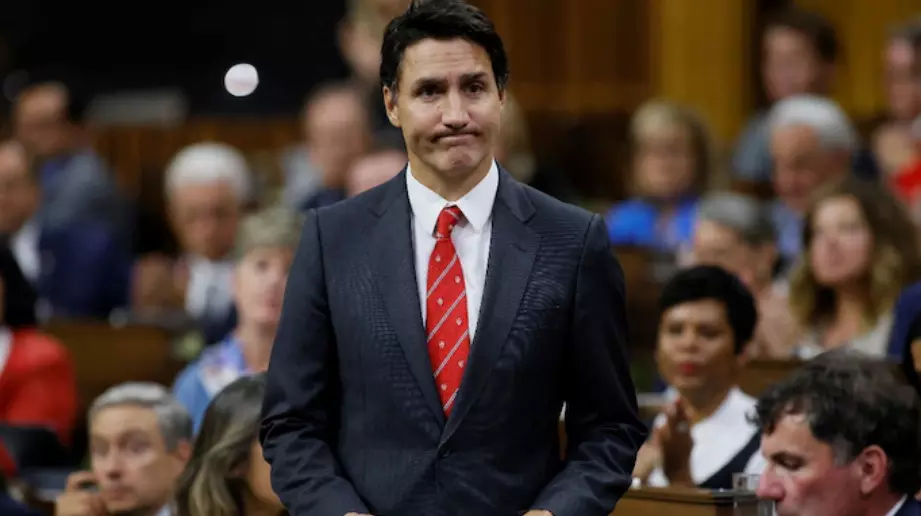Freezing ties

The diplomatic rift between India and Canada has touched yet another low point after the Trudeau administration decided to label India as a ‘cyber adversary’ in its latest ‘National Cyber Threat Assessment 2025-2026’ report. By categorising India with states known for aggressive cyber activities, Canada has effectively escalated tensions with India—a country it once shared friendly relations with. It is widely known that relations between the two countries have been on a persistent downward slope for the last couple of months, or even beyond. Every subsequent happening is making the chance for swift reconciliation slimmer. The backlash from New Delhi, as expected, has been swift and severe. India’s Ministry of External Affairs (MEA) called the move “another Canadian strategy to attack and malign India internationally.”
The timing of these accusations and their severity cannot be overlooked. Highly placed officials from the MEA have alleged that Canada is attempting to “shape global opinion” against India. India has understandably registered strong reservations against such inflammatory and unfounded claims. Officials have strongly criticised the Trudeau administration by questioning the evidence, or lack thereof, behind the serious claims. It appears that Canadian actions are a manifestation of deeper issues in the country’s political approach towards India. It is also being speculated that Trudeau’s administration is courting groups in Canada with anti-India sentiments, notably pro-Khalistani elements, for political gain. Under Trudeau, Ottawa has been increasingly vocal about its commitment to freedom of expression, which it argues justifies its lenient approach toward these groups. But India argues that this is more than freedom of speech. It is, in fact, a dangerous endorsement of extremism. The Trudeau administration’s refusal to rein in such groups has contributed to India’s perception that Canada is disregarding India’s security concerns and its national integrity. Canada’s diplomatic shield for such groups has, as New Delhi sees it, morphed into a thinly veiled political strategy, pandering to certain diaspora communities in Canada who carry significant voting power.
It goes without saying that these new cyber-related allegations have worsened an already frosty situation, and the effects have started to manifest in practical, everyday diplomacy. Both countries have already pulled their high commissioners, signalling a breakdown in traditional diplomatic engagement. India has also accused Canada of harassing and surveilling its diplomats. Canada appears to either sidestep these accusations or brush them off as procedural necessities. India has flatly rejected such a diplomatic stance, terming the actions to be a blatant disregard for international conventions. While the accusations made by Canada are very serious, no concrete evidence is presented to substantiate the same. Against this backdrop, it is hard to ignore the political motivations behind Canada’s actions. For Trudeau, aligning himself with certain diaspora groups may cement his domestic standing, particularly among constituencies that sympathise with separatist movements. However, such a stance comes at a heavy price on the international front. For India, the stakes are high. The world sees India as a rising power with a vision for itself on the global stage. It has little patience for what it views as an unprovoked campaign to tarnish its image, and understandably so. The accusations in the Canadian report about India’s cyber capabilities are seen by New Delhi as baseless fear-mongering designed to manipulate global perception. India has clearly indicated that it won’t tolerate these moves.
In the end, Canada’s latest action seems to reflect a deeper breakdown in trust. The Trudeau administration appears willing to sacrifice diplomatic norms and strain bilateral relations for what India sees as short-term political gains. Both countries are now on a path that could have lasting consequences, with little sign of reconciliation in sight. If they continue down this path, the diplomatic chill could turn into a deep freeze. It is time to make amends and restore the thaw.



